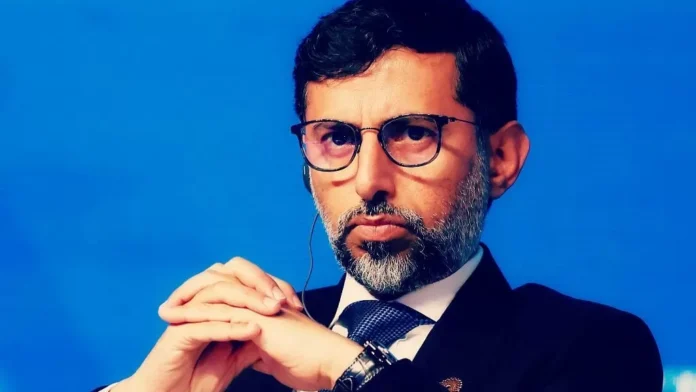In a world where debates over climate change and energy policies are at the forefront of discussions, it is refreshing to see voices in favor of common sense energy policies starting to emerge. The latest addition to this group is none other than the UAE’s Energy Minister, Suhail Al-Mazrouei. His recent remarks, highlighting the need for a ‘reality check’ on climate alarmist ‘energy transition’ goals, have garnered significant attention and support from experts in the field.
In a recent interview with JPMorgan, Al-Mazrouei emphasized the importance of taking a more balanced and realistic approach towards energy policies. He highlighted the fact that while renewable sources of energy are essential, they cannot solely meet the world’s growing energy demands and replace traditional sources of energy such as oil and gas. This statement is a breath of fresh air in a world where many are quick to dismiss fossil fuels and advocate for a complete shift towards renewable energy sources.
Al-Mazrouei’s remarks come at a crucial time when the world is grappling with the challenges posed by climate change. Many developed countries have set ambitious goals to reduce their carbon emissions and have been pushing for a global shift towards renewable energy as the primary source of energy. While these goals are noble, they are often unrealistic and not achievable in the short term. Al-Mazrouei’s ‘reality check’ is a reminder that we need to take a more practical approach towards energy policies and not let our emotions and fears cloud our judgment.
The Energy Minister’s comments have been met with widespread support from experts in the field. Many have echoed his sentiments and have stressed the need for a more balanced and diversified approach towards energy policies. It is essential to understand that renewable energy is still in its early stages and cannot meet the world’s energy demands on its own. Hence, it is crucial to continue investing in traditional sources of energy such as oil and gas while also gradually transitioning towards renewable sources.
Additionally, Al-Mazrouei’s remarks have also shed light on the strategic importance of traditional sources of energy for countries like UAE. As one of the world’s largest oil producers, UAE relies heavily on its oil and gas exports for economic growth and development. However, in recent years, the country has also made significant investments in renewable energy projects, such as the world’s largest solar plant. This balanced approach towards energy policies has not only helped the country diversify its economy but has also set an example for others to follow.
Moreover, the Energy Minister’s comments also serve as a reality check for developed countries that are often quick to criticize developing countries for their carbon emissions and reliance on traditional energy sources. Al-Mazrouei rightly points out that developing countries cannot be expected to abruptly shift towards renewable energy sources, as it requires significant investments and infrastructure. Instead, the developed countries should support and assist developing countries in their transition towards cleaner energy sources.
In conclusion, the UAE’s Energy Minister Suhail Al-Mazrouei’s remarks have brought much-needed attention to the importance of taking a balanced and realistic approach towards energy policies. As the world continues to grapple with the challenges posed by climate change, it is crucial to understand that renewable energy cannot be the sole solution to our energy needs. We must continue to invest in traditional sources of energy while gradually transitioning towards cleaner and more sustainable energy sources. As Al-Mazrouei rightly points out, it is time for a ‘reality check’ on our energy policies, and we must work together to find a practical and achievable solution for a sustainable future.


